Top 25 Samurai Movies Of All Time, Ranked
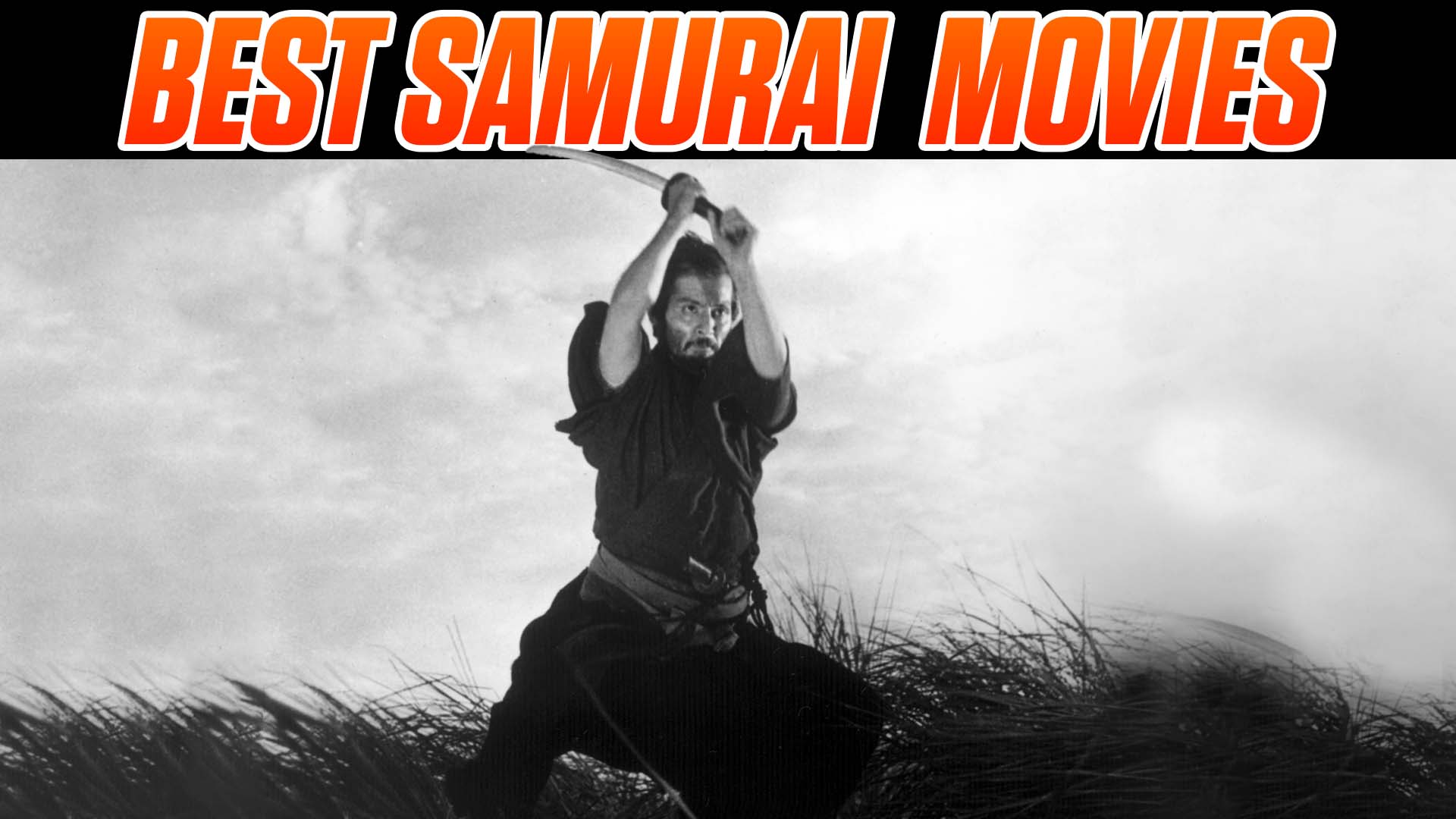
Samurai films that define the spirit and soul of warriors
Samurai movies embody discipline and an aura of powerful mystique. They’re not just about swinging a katana or fighting with all might, these are poetic tales of honor and duty. The warriors lead blood-soaked epics of revenge and rebellion, offering a glimpse into Japanese culture and historical swordsmanship. These 25 films blend philosophy, loyalty, morality, and action, while exploring the true cost of violence.
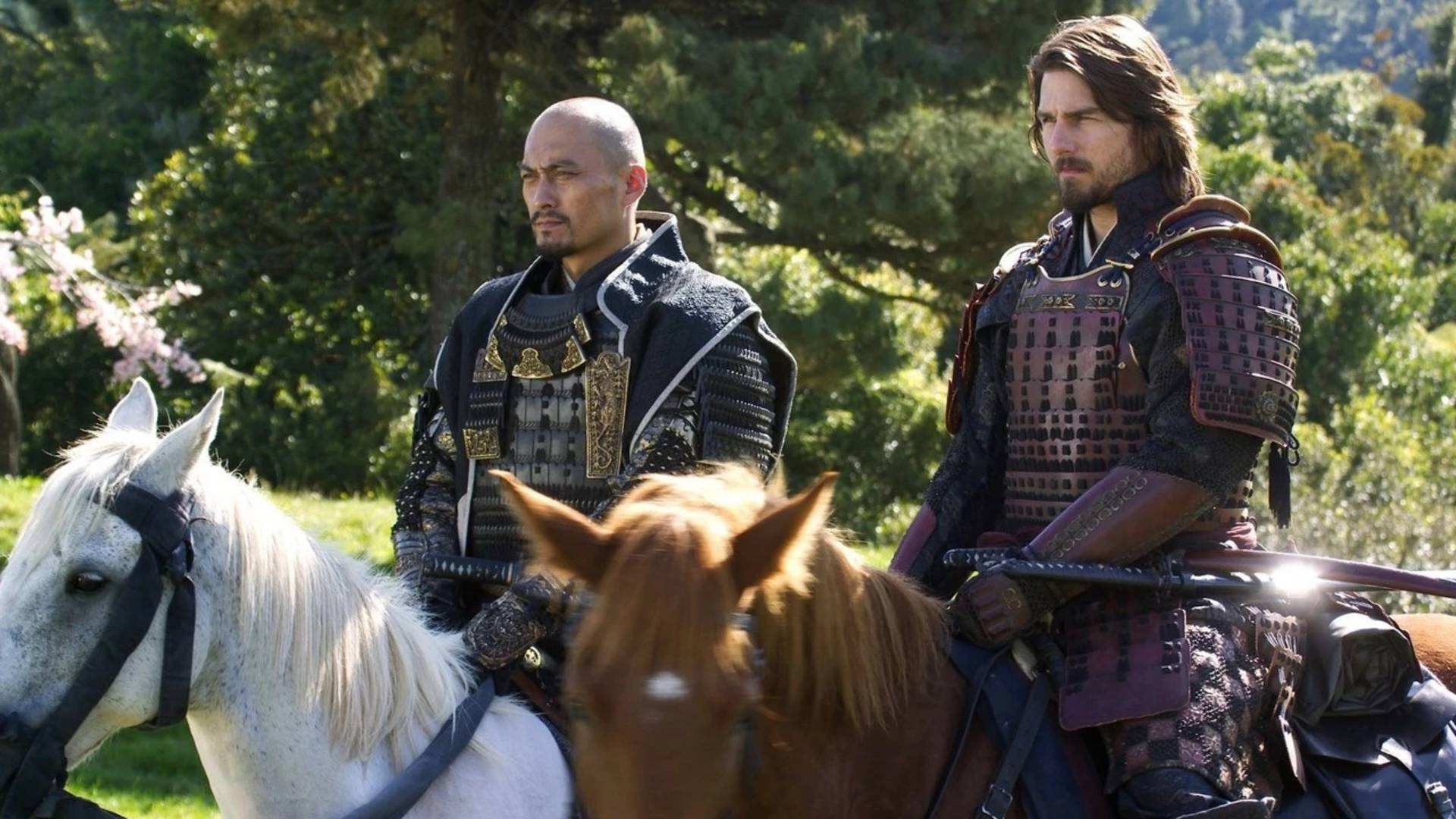
25. The Last Samurai (2003)
This grand Hollywood epic, starring Tom Cruise, was the gateway for many Western audiences into the world of samurai. While its "white savior" narrative is a clear trope, the film is made with genuine respect for its subject. Its stunning production design, beautifully choreographed battles, and poignant score make it a worthy, if fictionalized, tribute to the end of the samurai era.
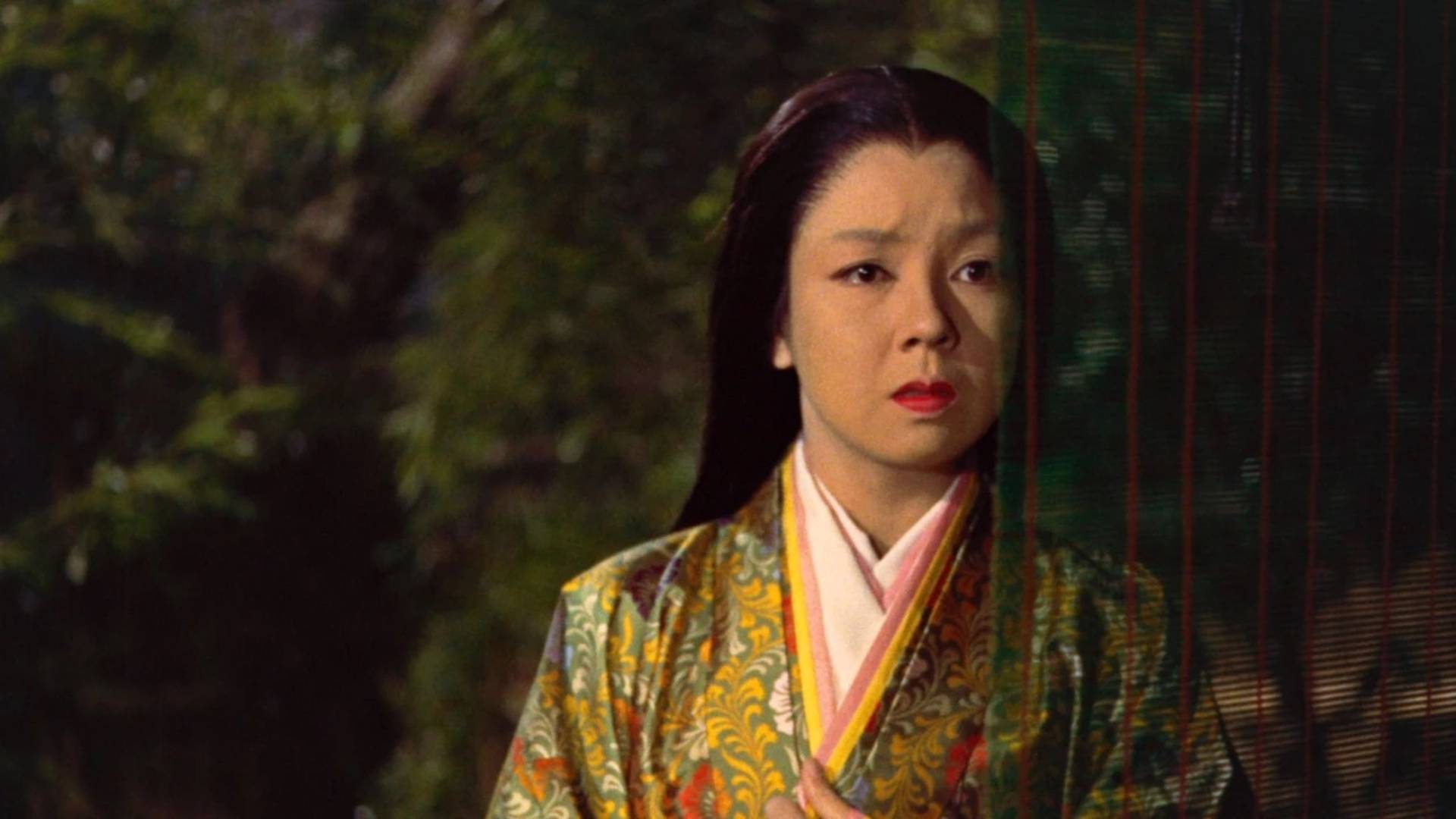
24. Gate of Hell (1953)
A landmark of world cinema, this was one of the first Japanese color films to win major international awards (including an Oscar). The story is a tragic tale of obsessive love and betrayal, but its primary legacy is its breathtaking visual beauty. The painterly use of color and composition influenced directors for decades and showed that the chambara genre could be a vehicle for high art.
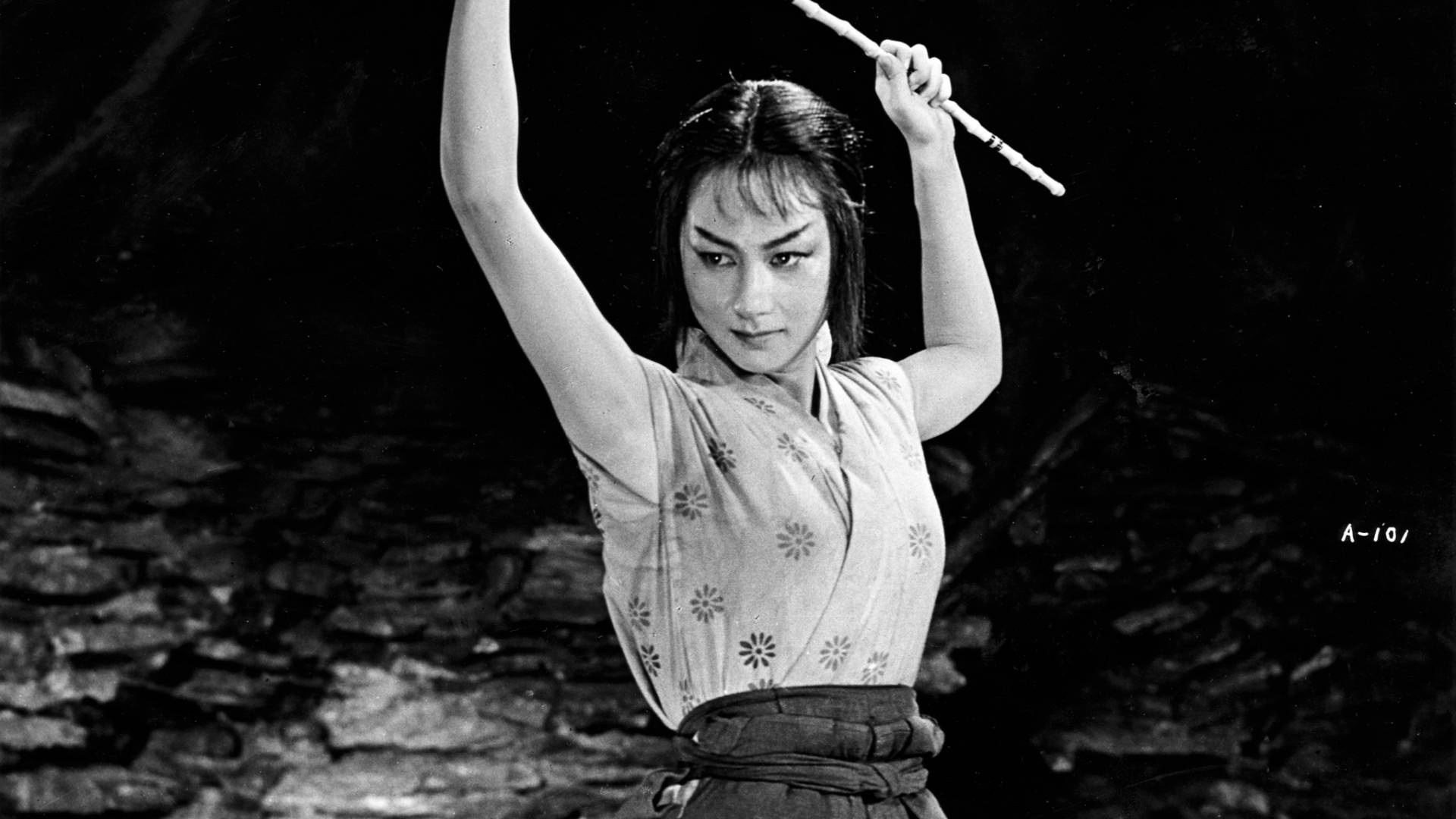
23. The Hidden Fortress (1958)
This is the film that famously inspired George Lucas to create Star Wars. It’s a rousing, high-adventure epic following a brash, powerful general (Toshiro Mifune) as he escorts a princess through enemy territory. The story is ingeniously told from the perspective of two bumbling, greedy peasants, creating a thrilling and fun-filled adventure that's a joy to watch.
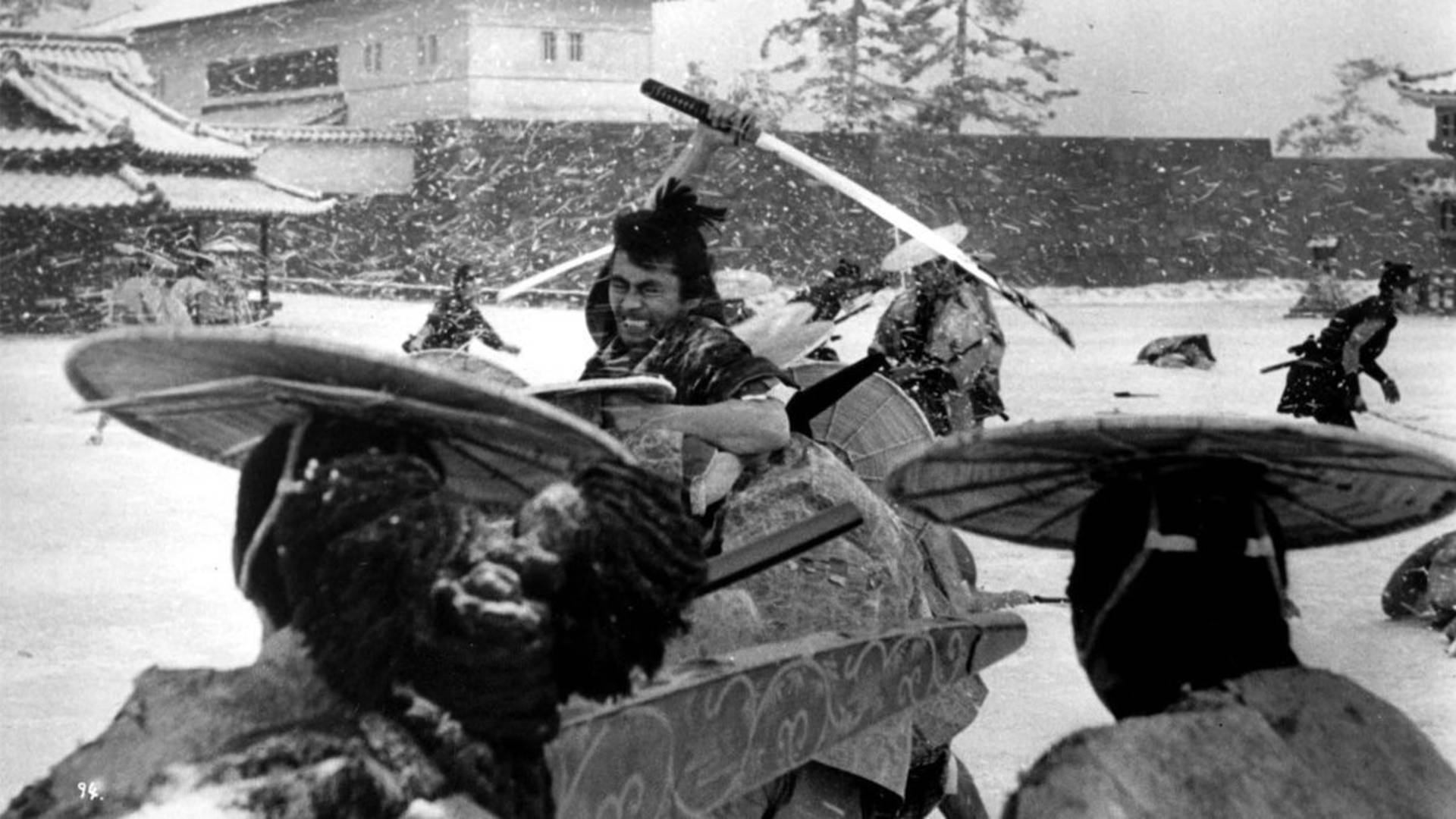
22. Samurai Assassin (1965)
A dark and complex political thriller set against a backdrop of falling snow. The film follows a masterless, outcast samurai (Toshiro Mifune) who becomes entangled in a massive conspiracy to assassinate a high-ranking official. It’s a masterpiece of suspense, slowly revealing its secrets and building to a chaotic and bloody climax in the snow.
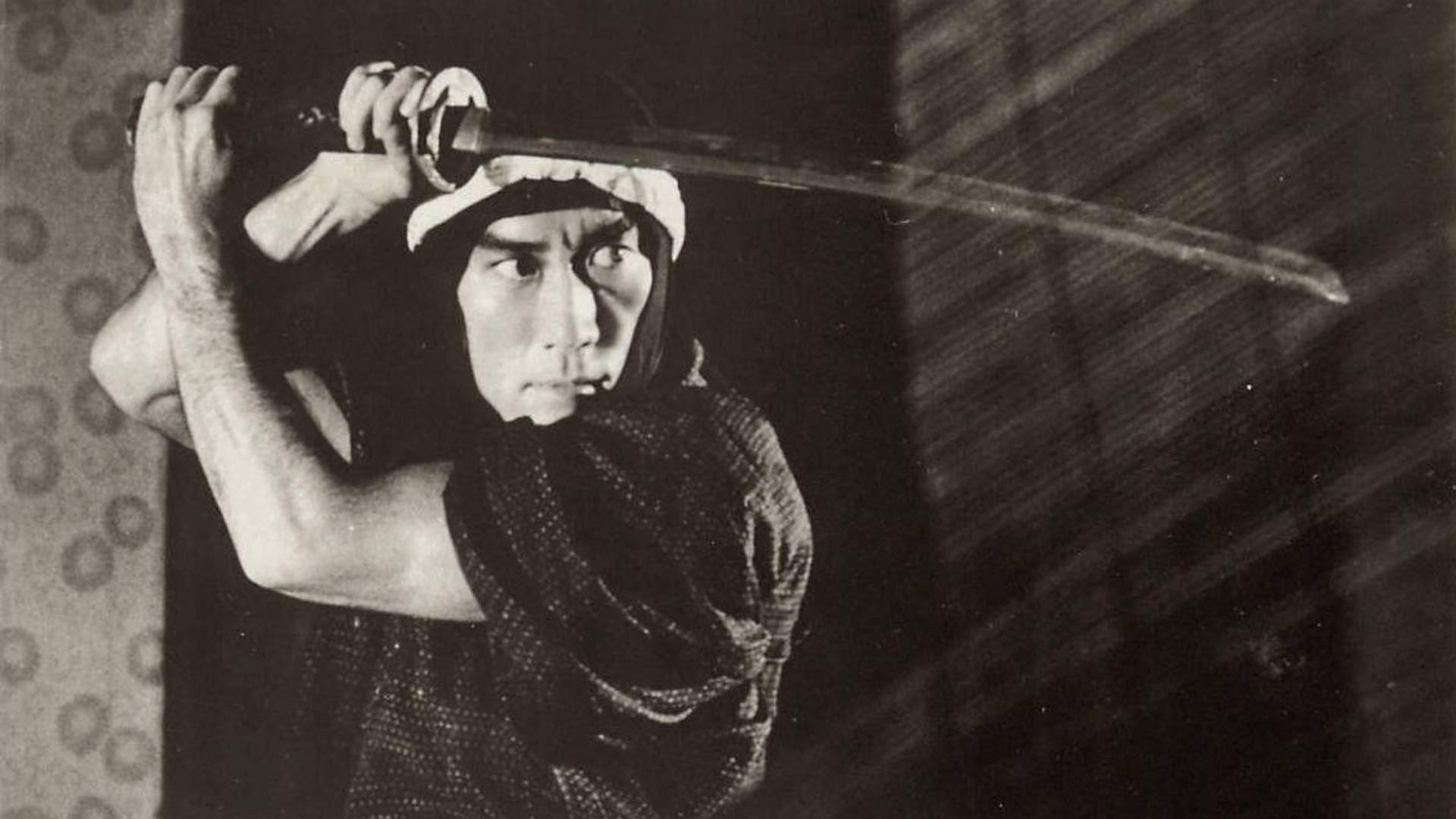
21. Hitokiri (Tenchu!) (1969)
A brutal and cynical look at the end of the samurai era. Hitokiri ("manslayer") tells the story of a low-born samurai who becomes a feared political assassin, only to be discarded by his masters when he is no longer useful. It's a grim, bloody, and powerful critique of the blind loyalty that the Bushido code demanded.
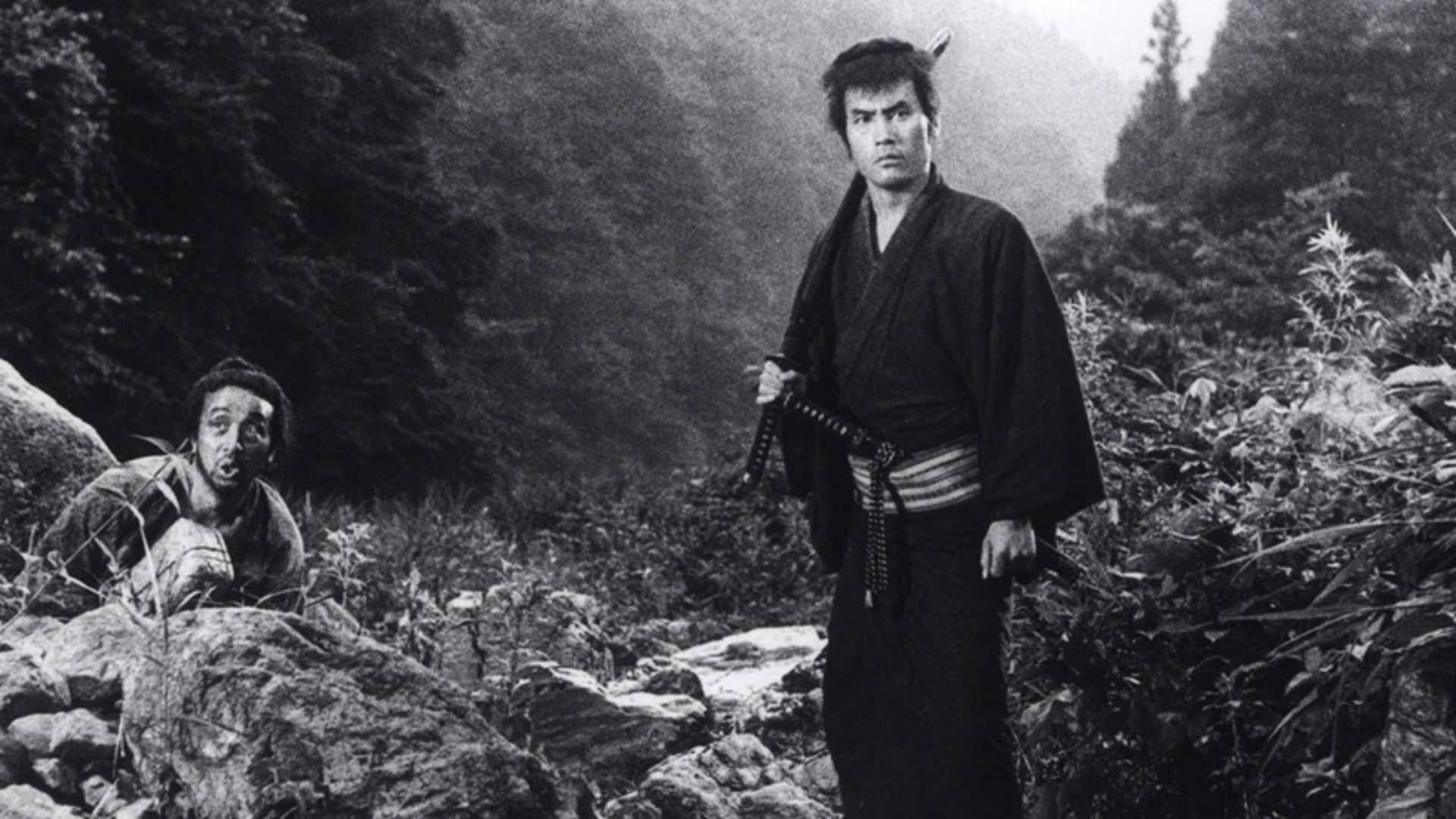
20. Sword of the Beast (1965)
Another Hideo Gosha classic that helped define the cynical, anti-hero ronin. A samurai flees his clan after killing a counselor as a matter of principle. Hunted by his former comrades, he finds himself protecting a group of peasants against a tyrannical lord. It's a fast-paced, stylish, and action-packed film that questions whether honor has any place in a corrupt world.
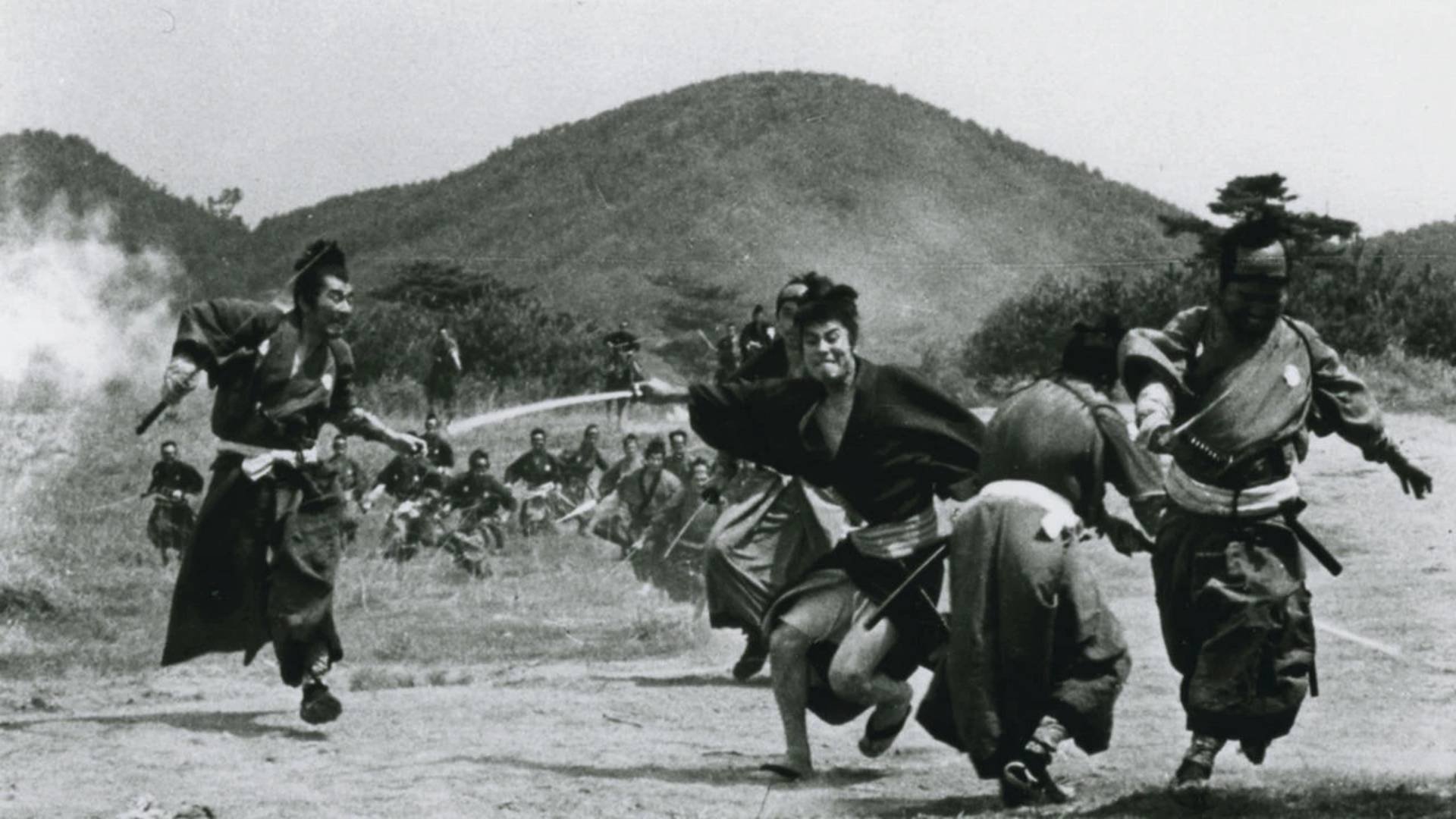
19. Three Outlaw Samurai (1964)
Gosha’s feature debut helped define the "cynical samurai" archetype. The film follows a wandering ronin who, largely out of boredom, decides to help a group of peasants who have kidnapped a local official's daughter. He's soon joined by two other ronin, each with their own selfish motives. It’s a gritty, stylish, and action-packed film.
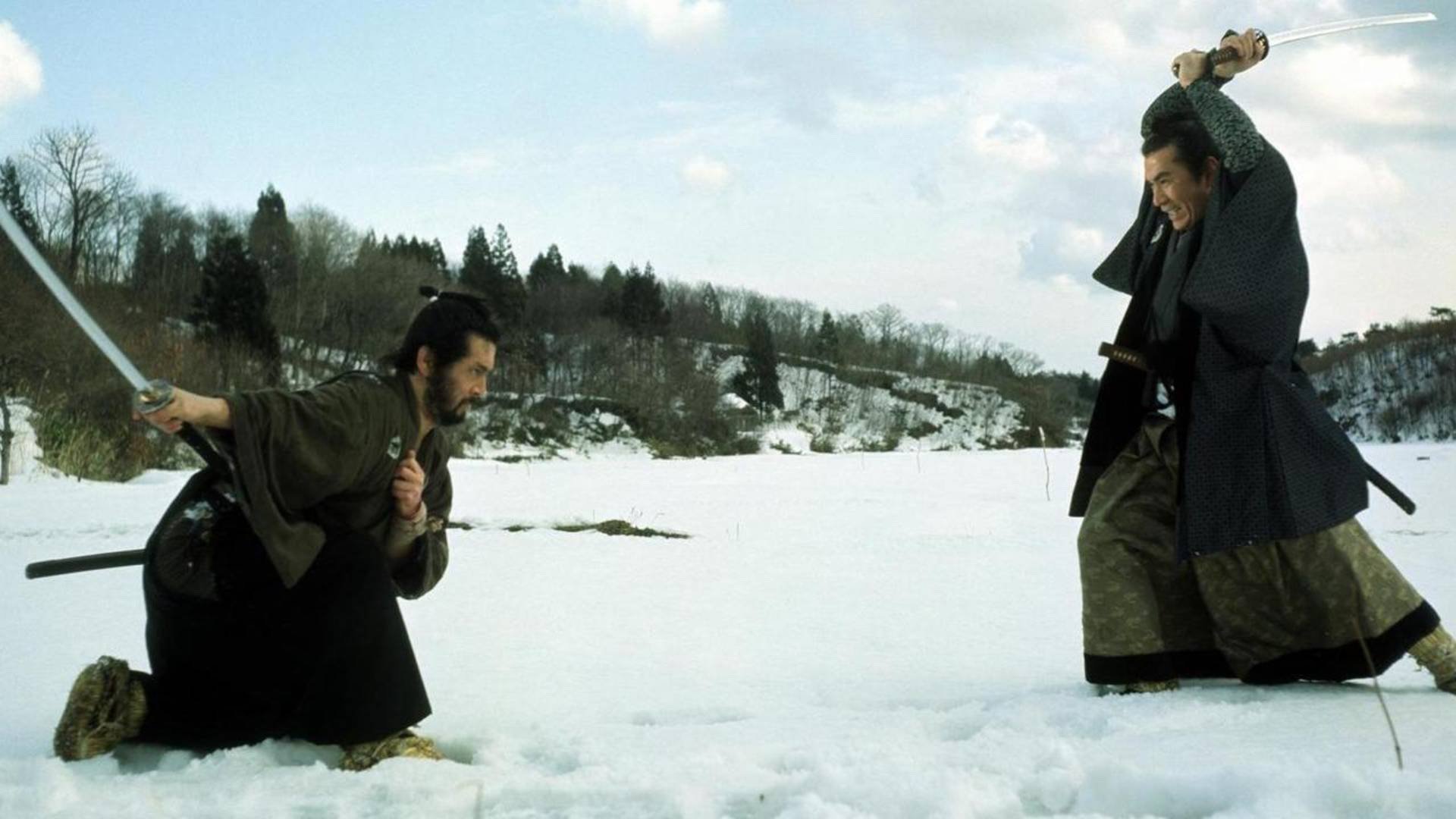
18. Goyokin (1969)
One of the most visually stunning samurai films ever made. Tatsuya Nakadai plays a samurai haunted by his clan's past massacre of innocent villagers. When he learns his clan plans to do it again, he must break his exile to stop them. The snowy landscapes, use of color, and somber tone create an unforgettable atmosphere, culminating in a breathtaking climax.
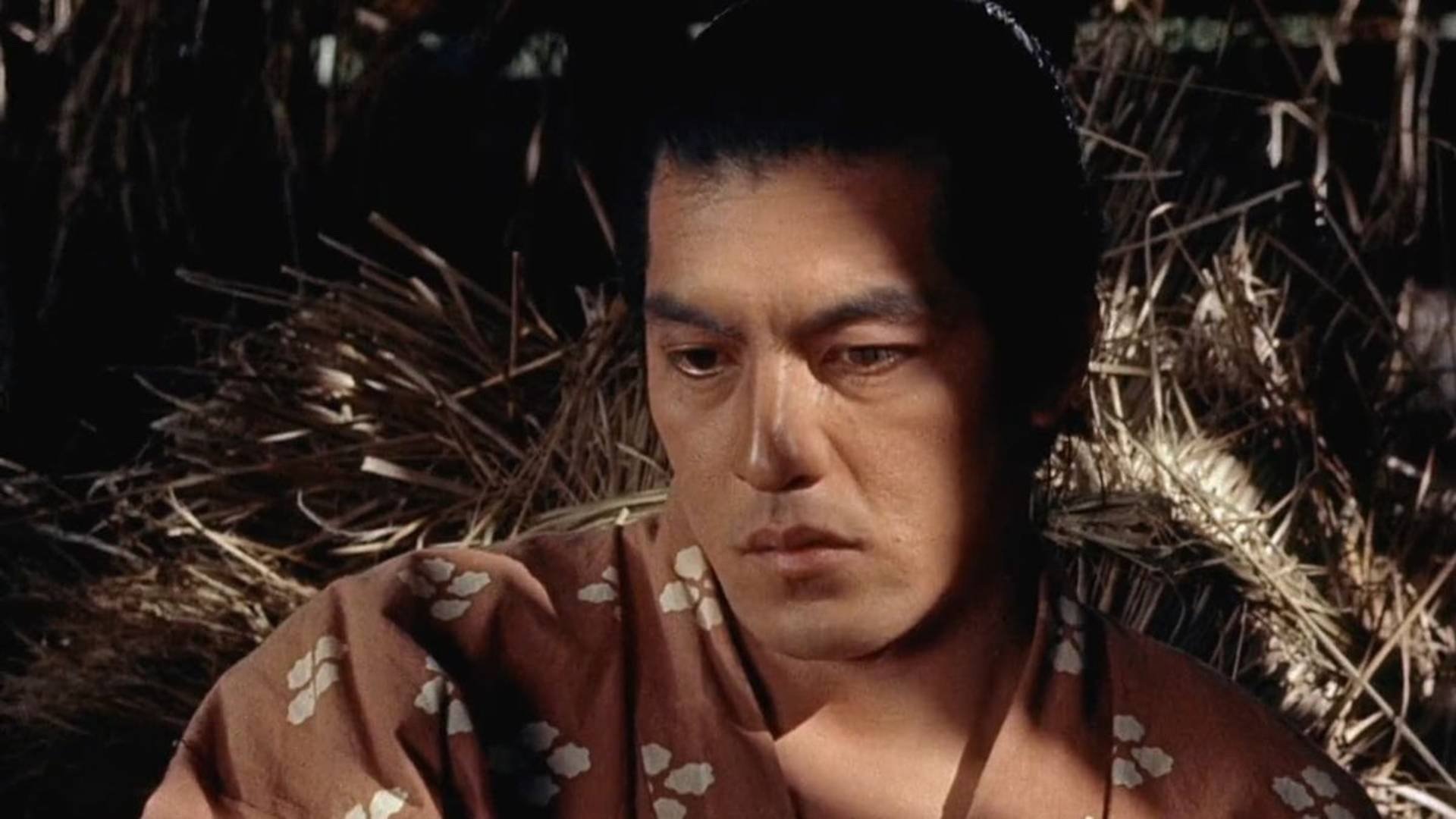
17. Samurai I: Musashi Miyamoto (1954)
This first installment of the epic Samurai Trilogy won the Oscar for Best Foreign Language Film and cemented Toshiro Mifune as a global star. It begins the sweeping life story of Japan's most legendary swordsman, Musashi Miyamoto, chronicling his journey from a wild, arrogant youth to a dedicated, wandering warrior. It is a foundational epic of the genre.
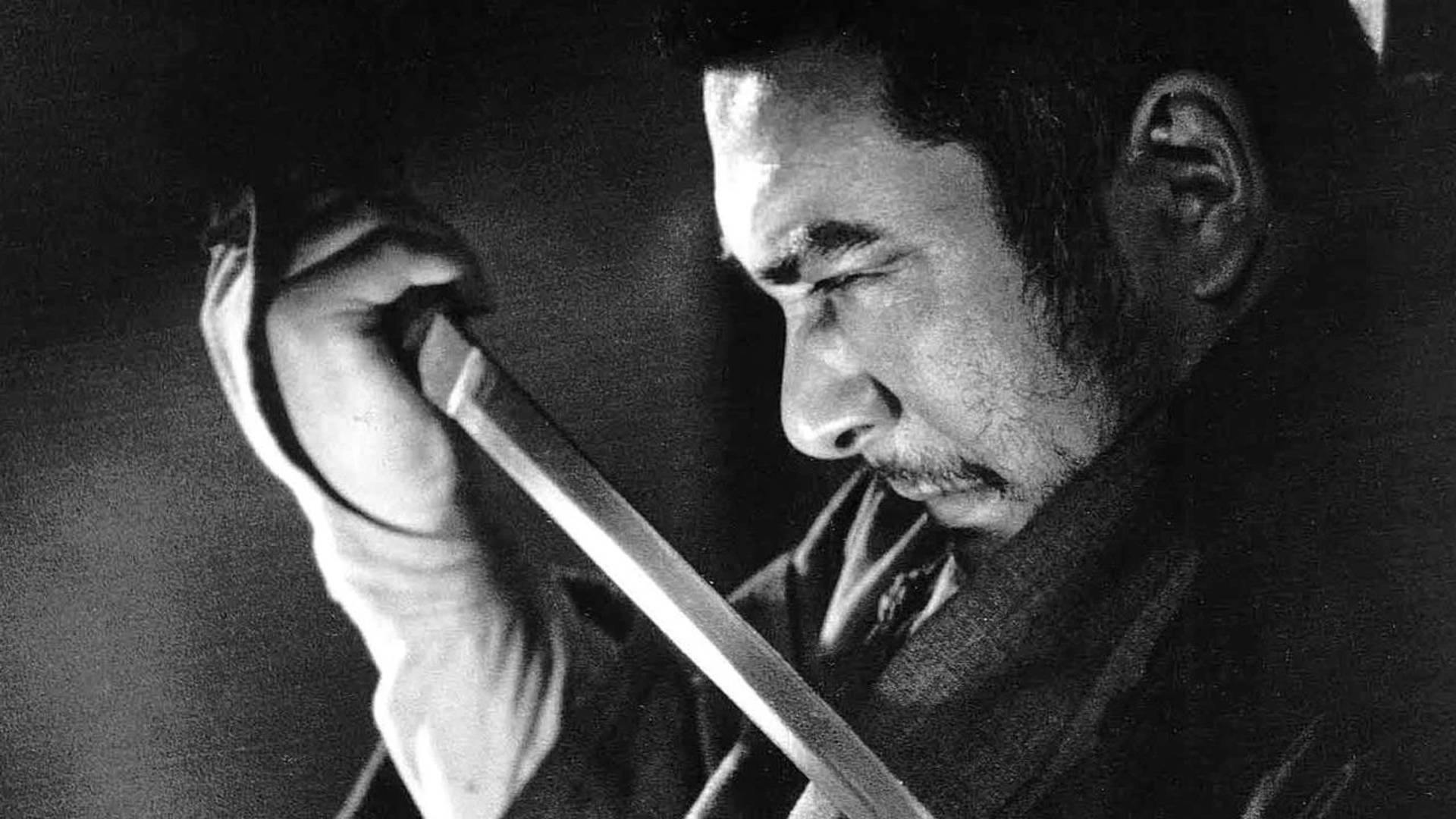
16. The Tale of Zatoichi (1962)
This is the film that introduced one of cinema's most enduring heroes: Ichi, the blind masseur. He’s a seemingly harmless man who wanders from town to town, gambling and offering his services. But underneath his humble exterior is a swordsman of superhuman skill. This first film set the formula for a franchise that would span decades, perfectly blending character, pathos, and lightning-fast swordplay.
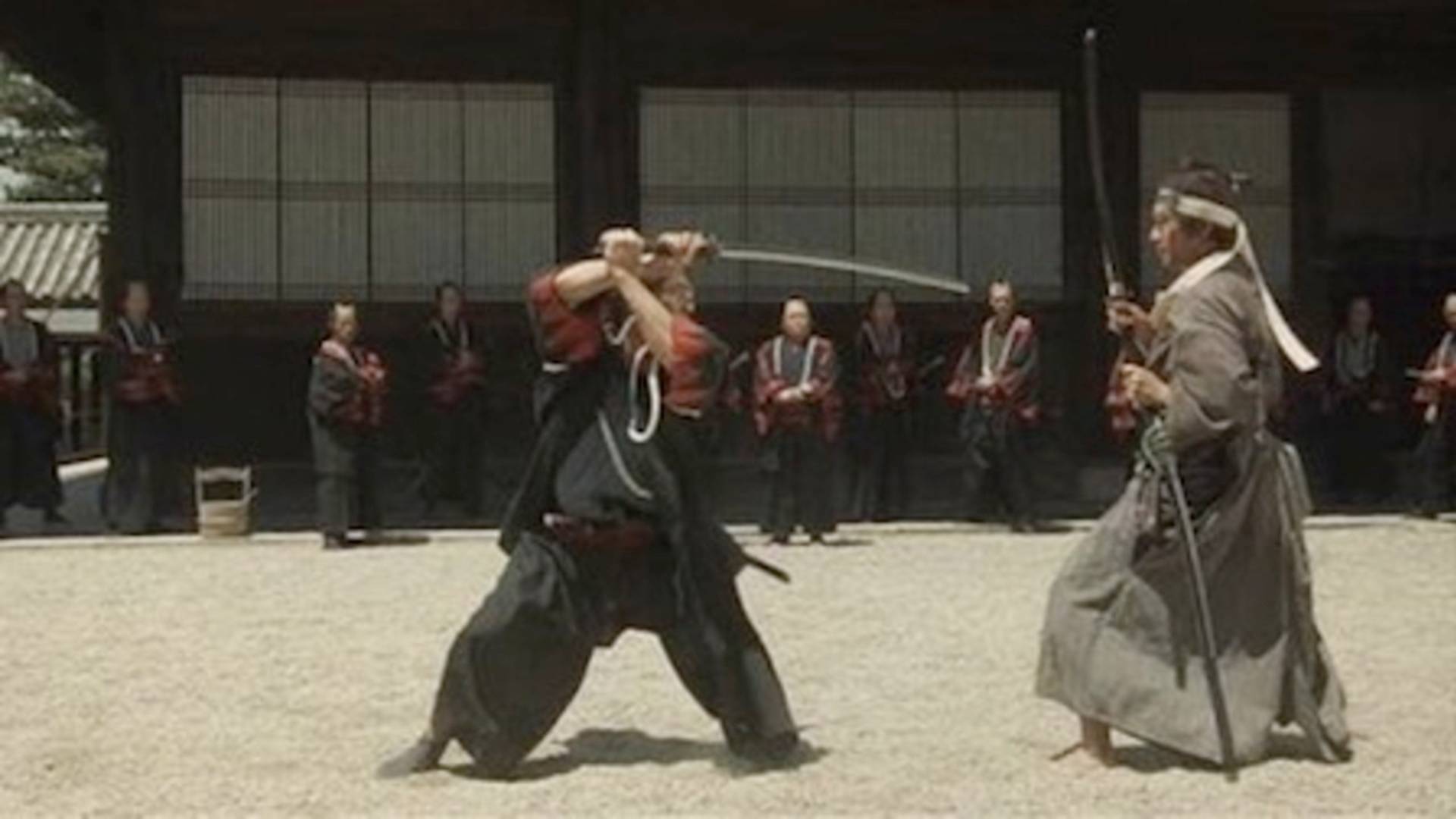
15. When the Last Sword Is Drawn (2002)
A profoundly moving, modern samurai epic. Like The Twilight Samurai, this film focuses on the end of the samurai era, telling the story of two Shinsengumi (Shogun's police) with opposing values: one a ruthless killer, the other a desperate, loving father who fights only for money to feed his family. It is a heartbreaking and powerful drama about loyalty, poverty, and the human cost of a dying age.
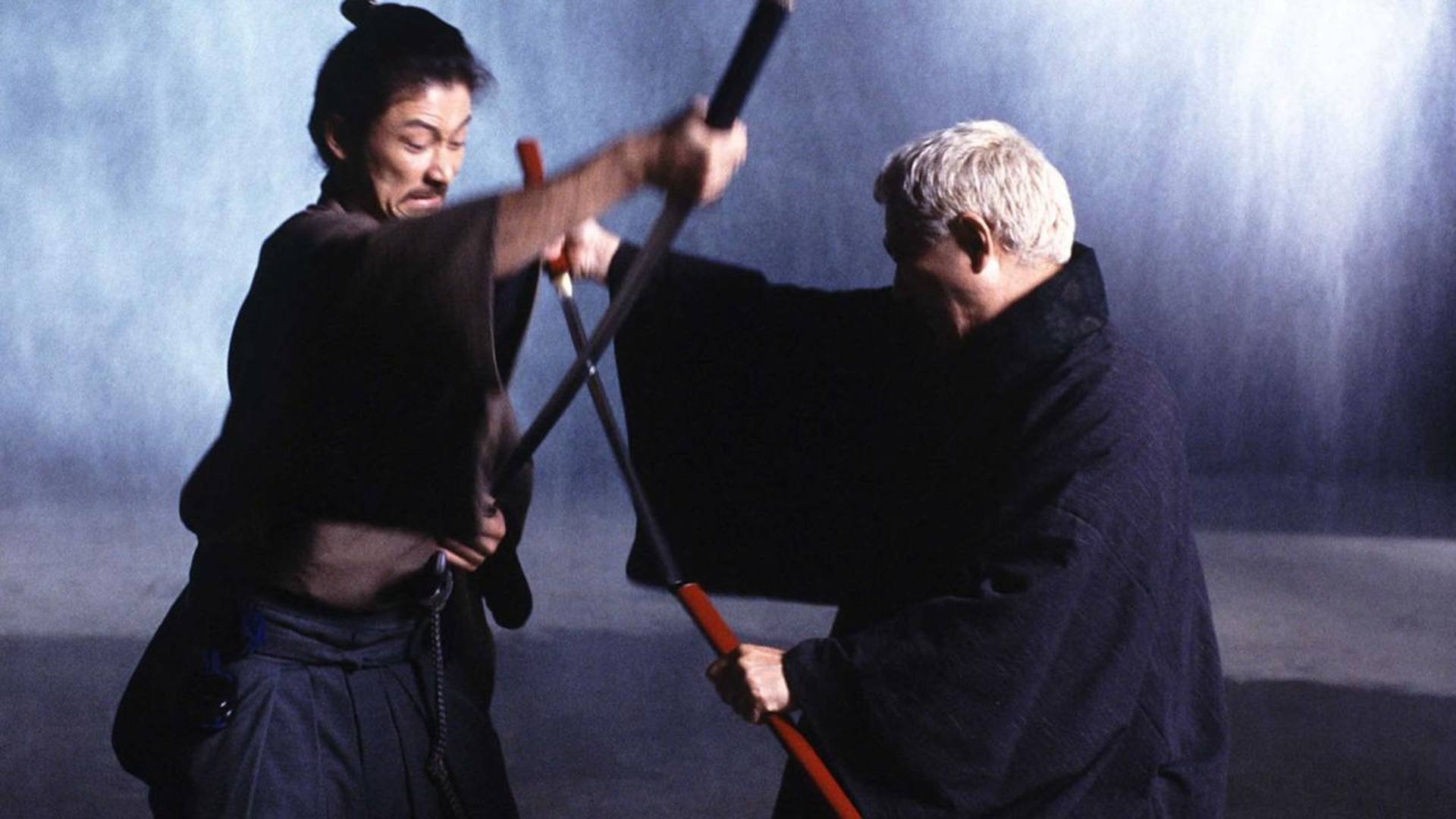
14. Zatoichi (2003)
Takeshi "Beat" Kitano wrote, directed, and starred in this wildly inventive and stylish reboot of the classic character. With a blond-haired Ichi, tap-dancing musical numbers, and bursts of sudden, brutal (and often CGI-enhanced) violence, it’s a subversive and utterly unique masterpiece. It re-contextualizes the ronin legend with arthouse flair and a wicked sense of humor.
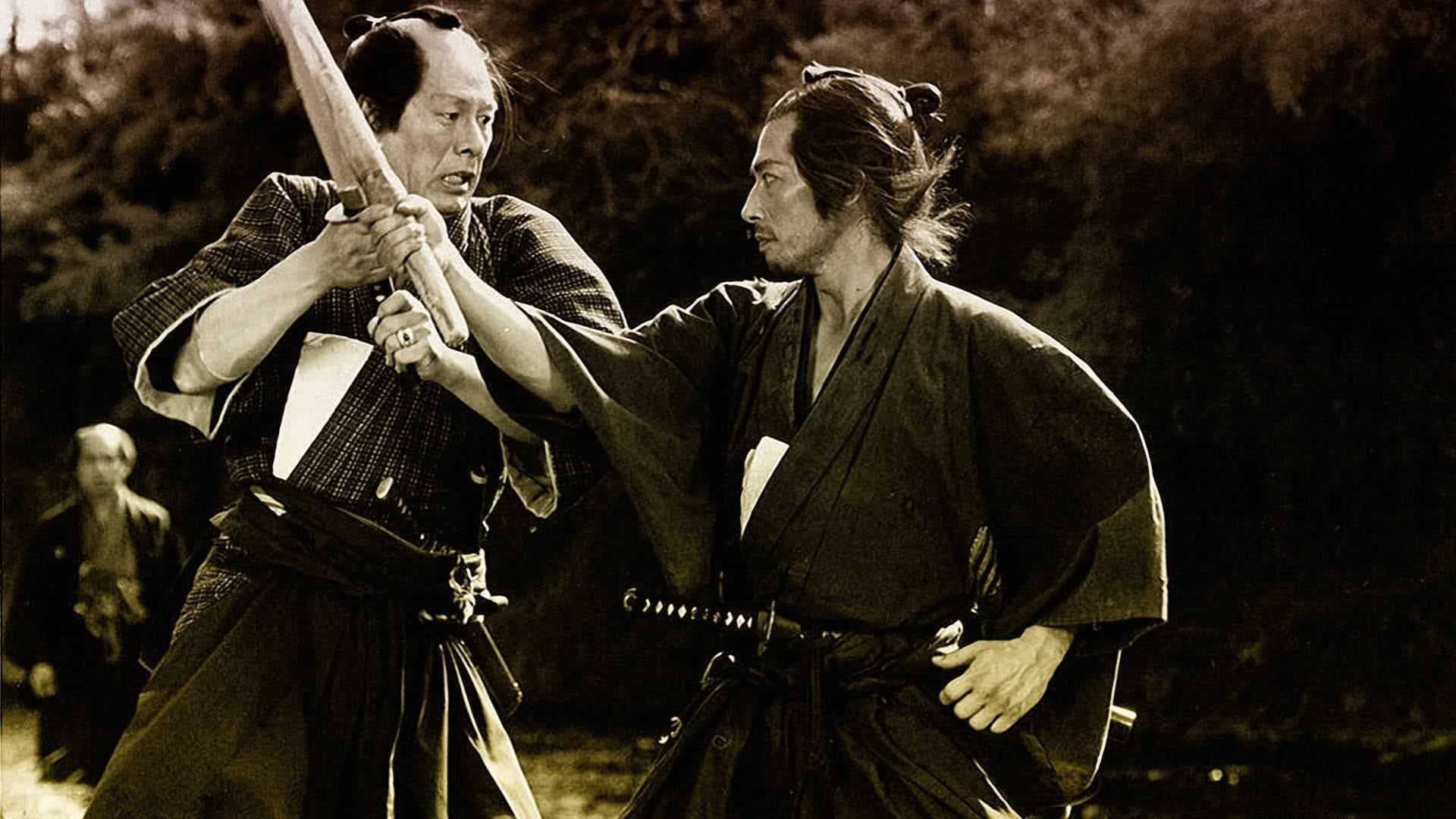
13. The Twilight Samurai (2002)
This critically acclaimed, Oscar-nominated film revitalized the genre by focusing on the quiet humanity of its hero. It follows a low-ranking, widowed samurai at the end of the feudal era, a loving father mocked as "Twilight" for shuffling home at dusk instead of going out drinking. He is a master swordsman who hates to fight, making his inevitable final duel all the more poignant.
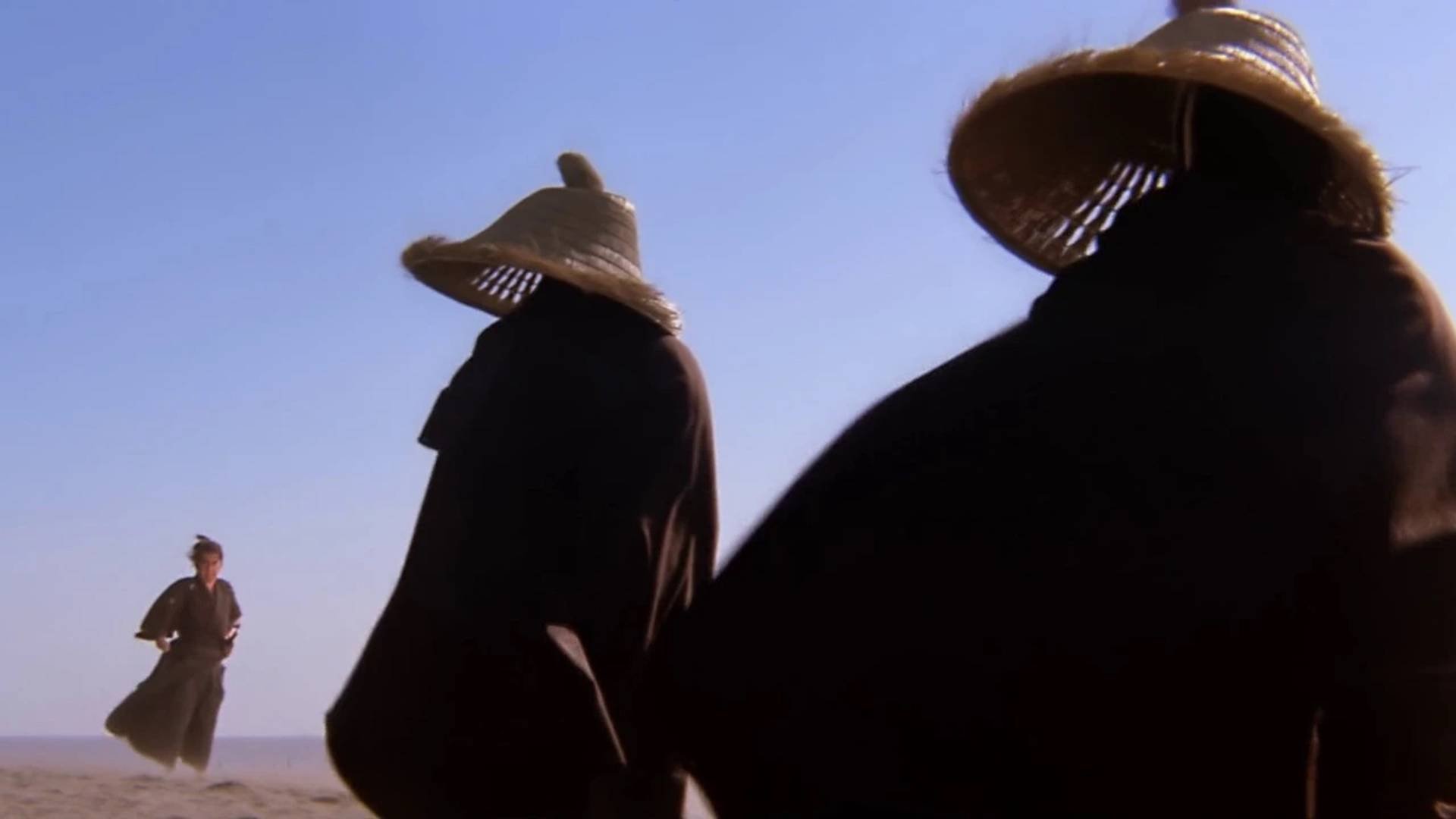
12. Lone Wolf and Cub: Baby Cart at the River Styx (1972)
The first film was a masterpiece, but this second entry in the series perfects the formula. It's a non-stop, hyper-violent, and incredibly stylish explosion of grindhouse art. Ogami Ittō and his son Daigoro face off against a clan of female assassins and the deadly "Gods of Death," culminating in a legendary battle that defines the series' "river of blood" aesthetic.
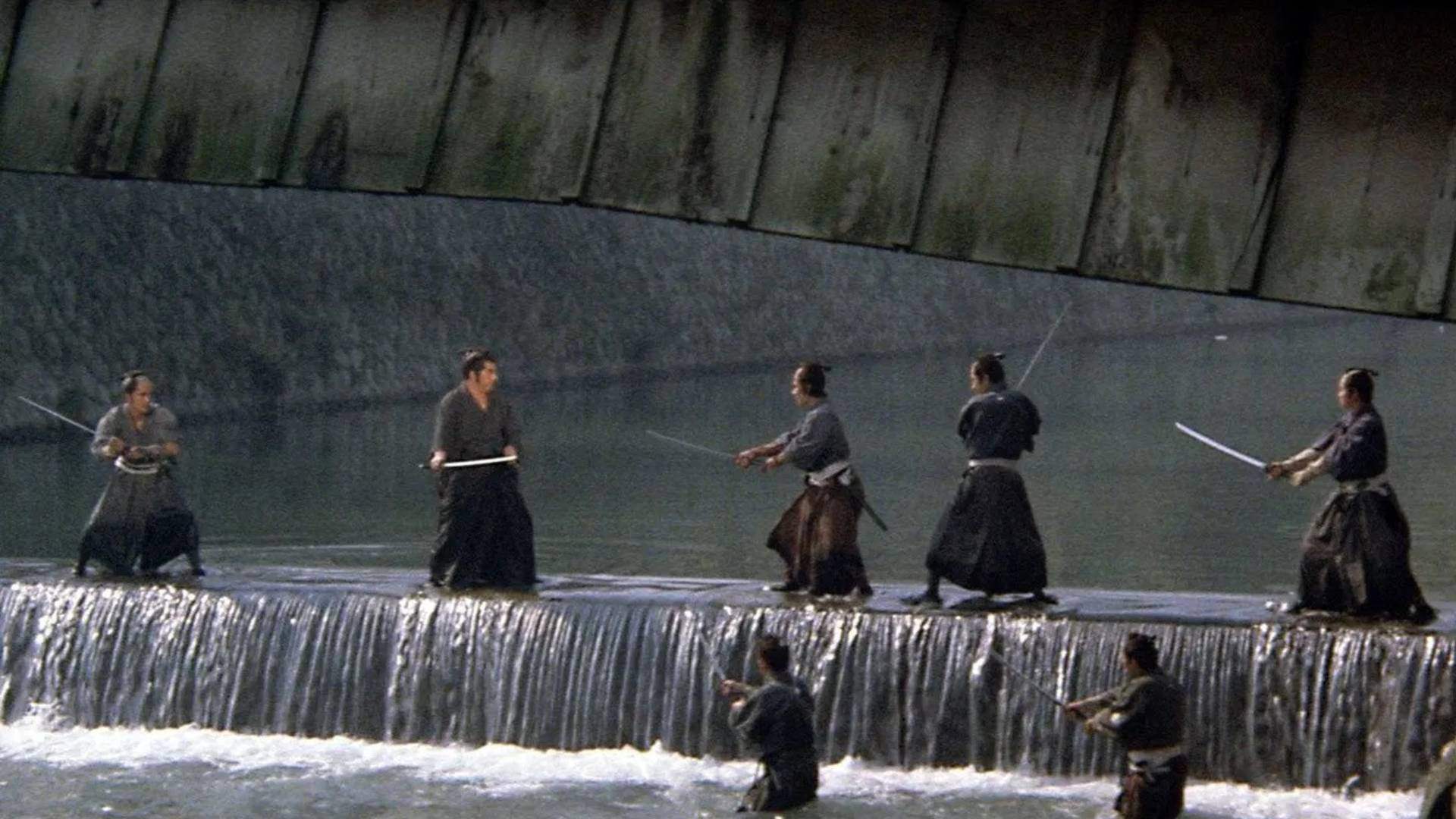
11. Lone Wolf and Cub: Sword of Vengeance (1972)
Based on the legendary manga, this is the first film in the brutally stylish Lone Wolf and Cub series. After his clan is framed, the Shogun's executioner, Ogami Ittō, takes his infant son Daigoro on the "road to hell," becoming an assassin for hire. It's famous for its high-pressure blood geysers, inventive action, and the iconic baby cart armed with hidden blades.
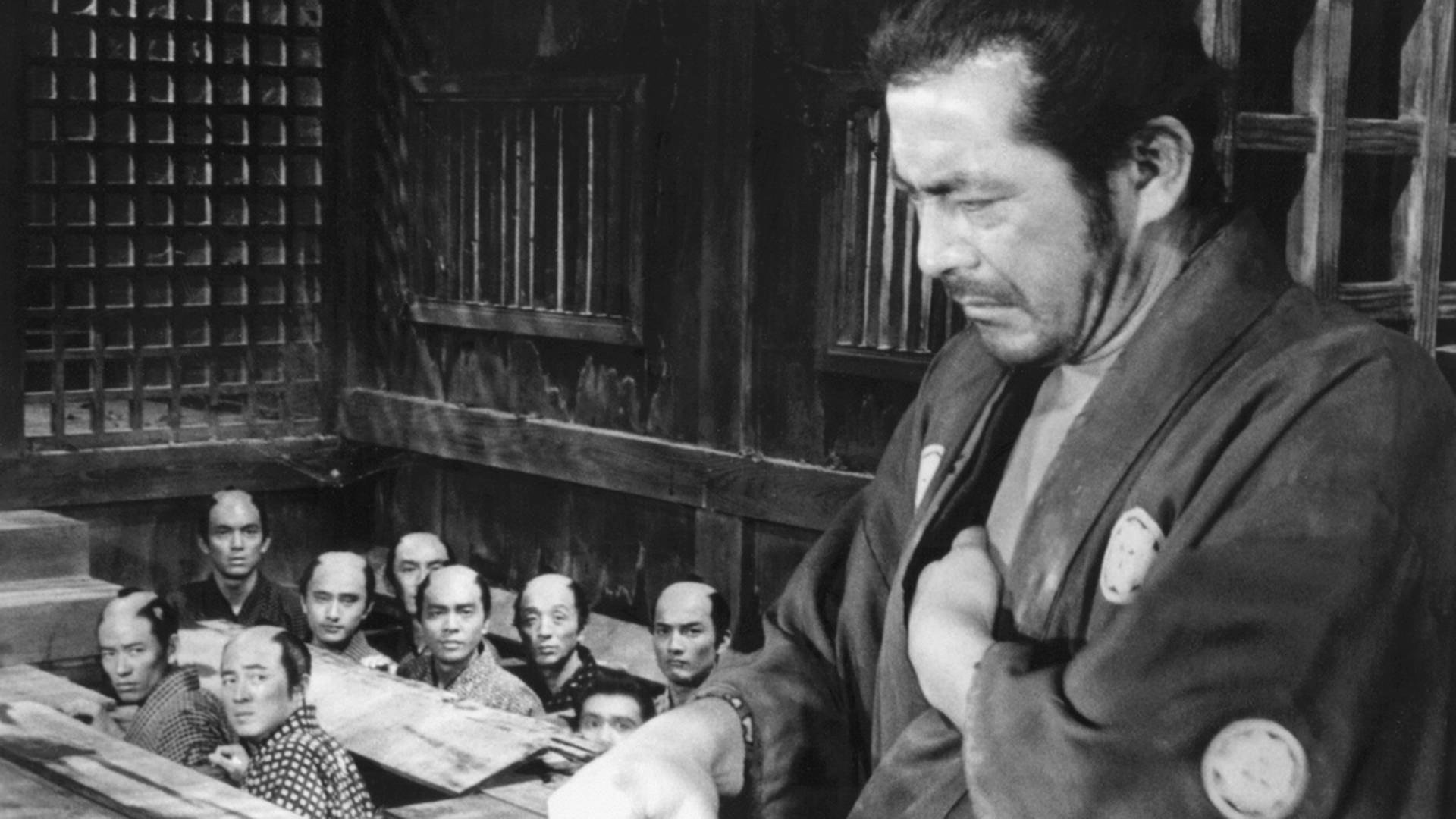
10. Sanjuro (1962)
The sequel to Yojimbo, Sanjuro sees Toshiro Mifune's gruff, nameless ronin return. This time, he helps a group of well-meaning but hopelessly naive young samurai rescue their kidnapped chamberlain. It’s lighter and more comedic than its predecessor, but it's just as brilliant, culminating in one of the most famous and shocking duels in movie history.
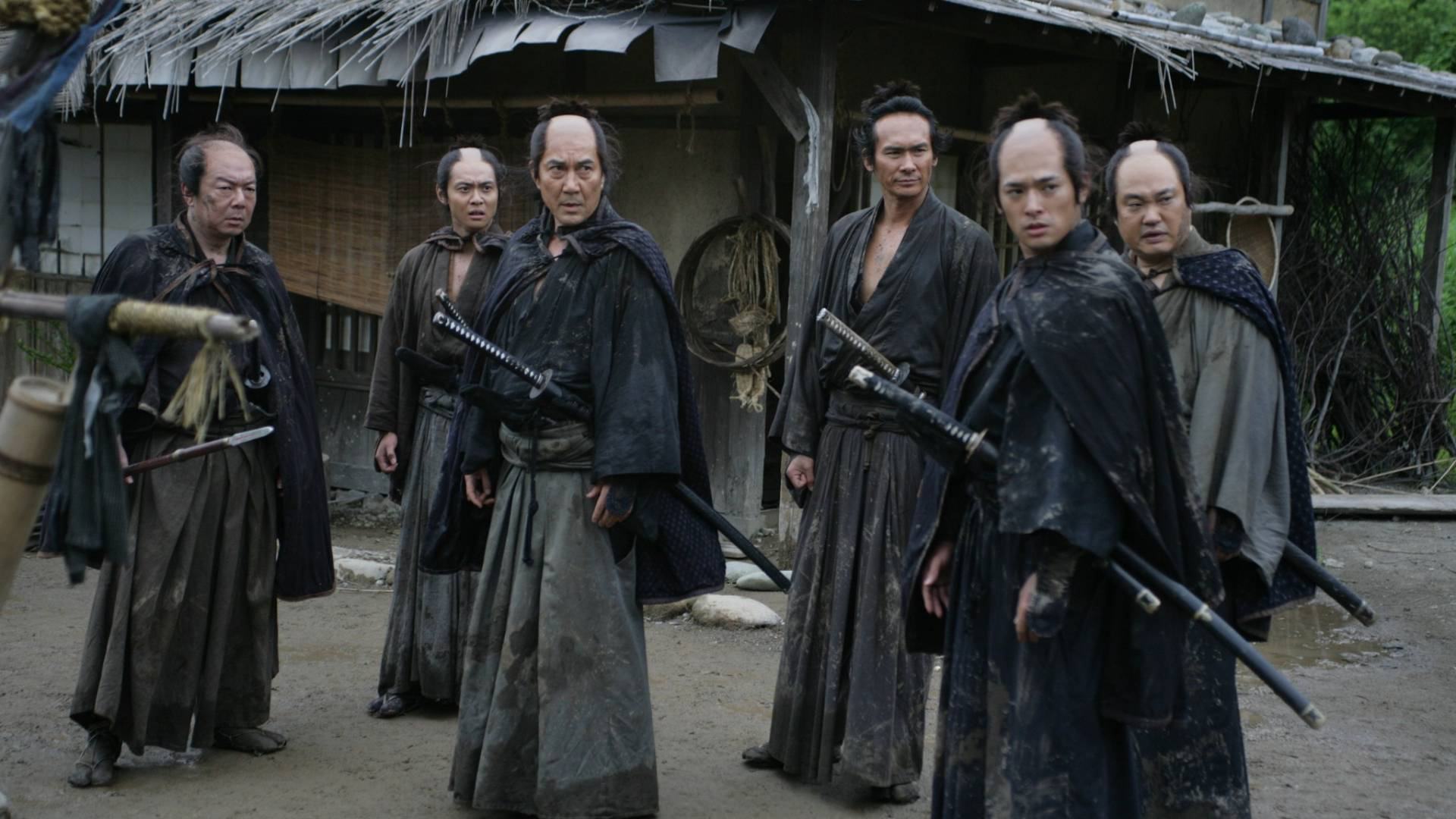
9. 13 Assassins (2010)
A remake of a 1963 classic, Takashi Miike's film is a modern masterpiece of action. To stop a sadistic and untouchable lord, a veteran samurai assembles a team of 13 killers for a suicide mission. The film is a slow burn, building political tension before exploding into a stunning, 45-minute final battle sequence—an intricate, brutal, and utterly glorious symphony of violence.
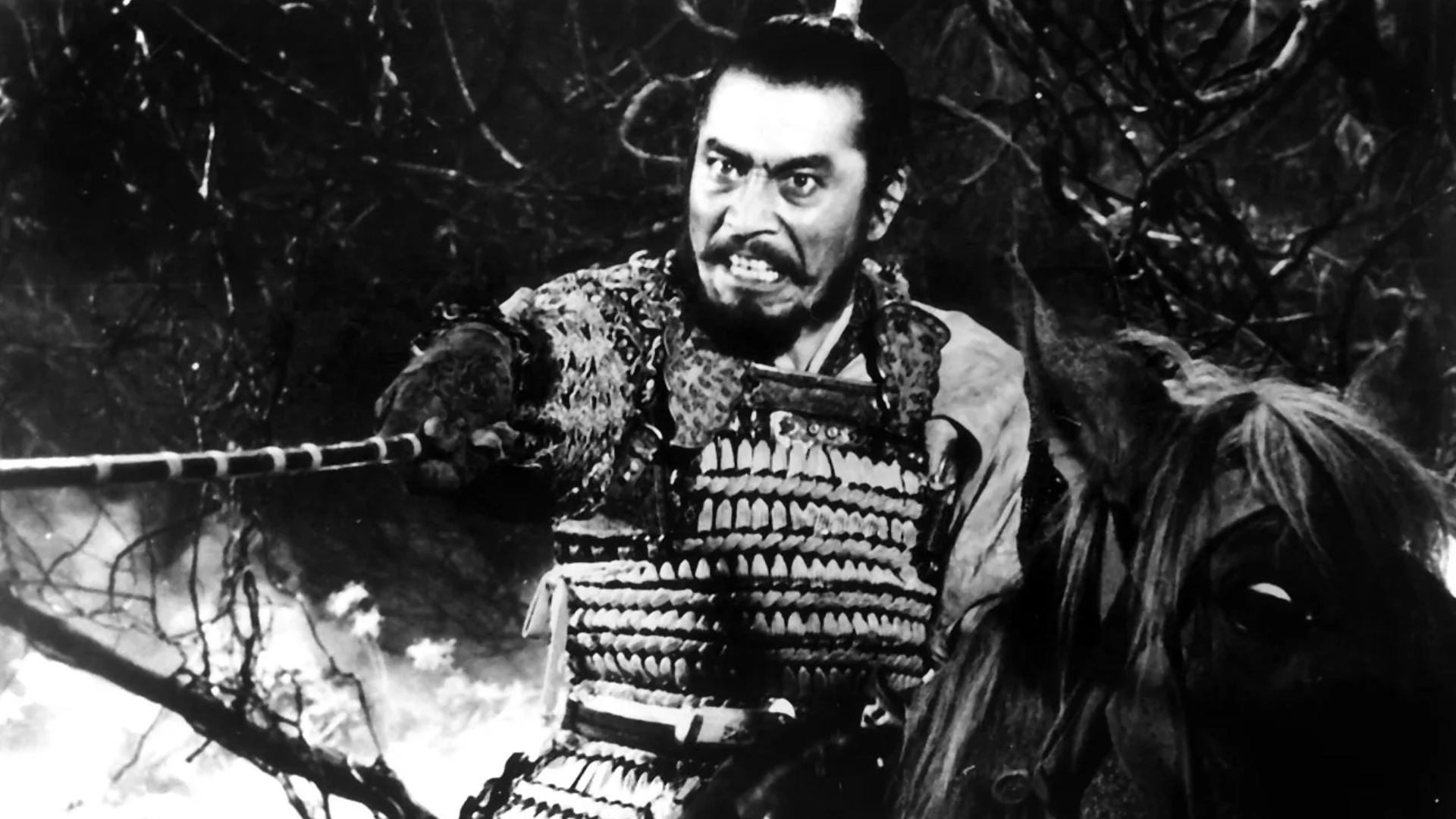
8. Throne of Blood (1957)
Kurosawa’s masterful adaptation of Shakespeare’s Macbeth is a haunting and visceral experience. Toshiro Mifune is terrifying as the warlord who, driven by a witch's prophecy and his wife's ambition, murders his way to the top. Kurosawa replaces Shakespeare's poetry with stunning, fog-drenched visuals and a sense of inescapable doom, creating a perfect fusion of classic tragedy and feudal Japanese horror.
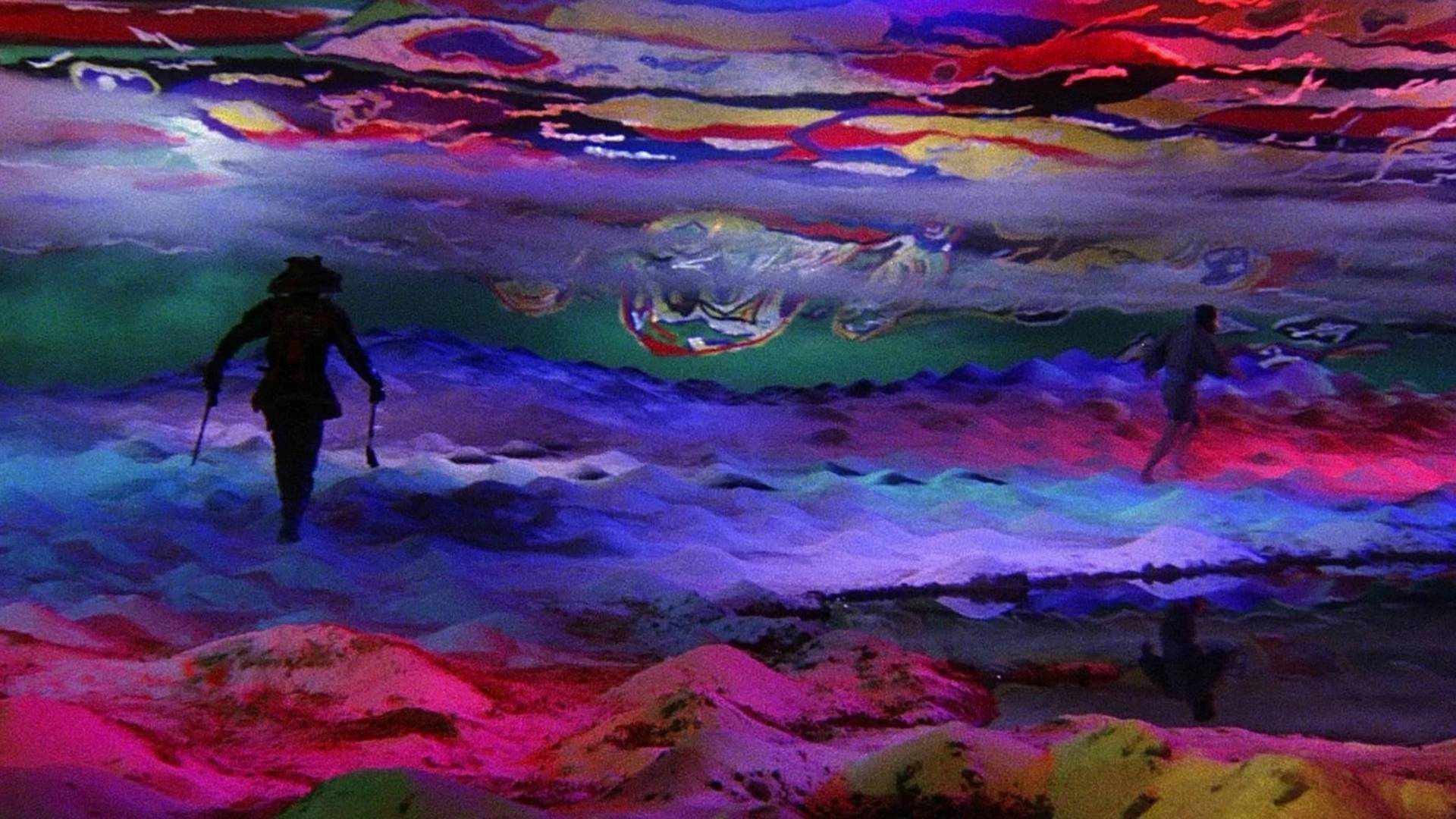
7. Kagemusha (1980)
This late-career epic from Kurosawa is a powerful meditation on identity and illusion. A lowly thief is spared execution because he is a perfect double for a dying warlord. He is forced to become the lord's "shadow warrior" (kagemusha) to hold the clan together. What begins as a performance becomes a profound tragedy as the man loses himself in the role. It served as Kurosawa's grand dress rehearsal for Ran.
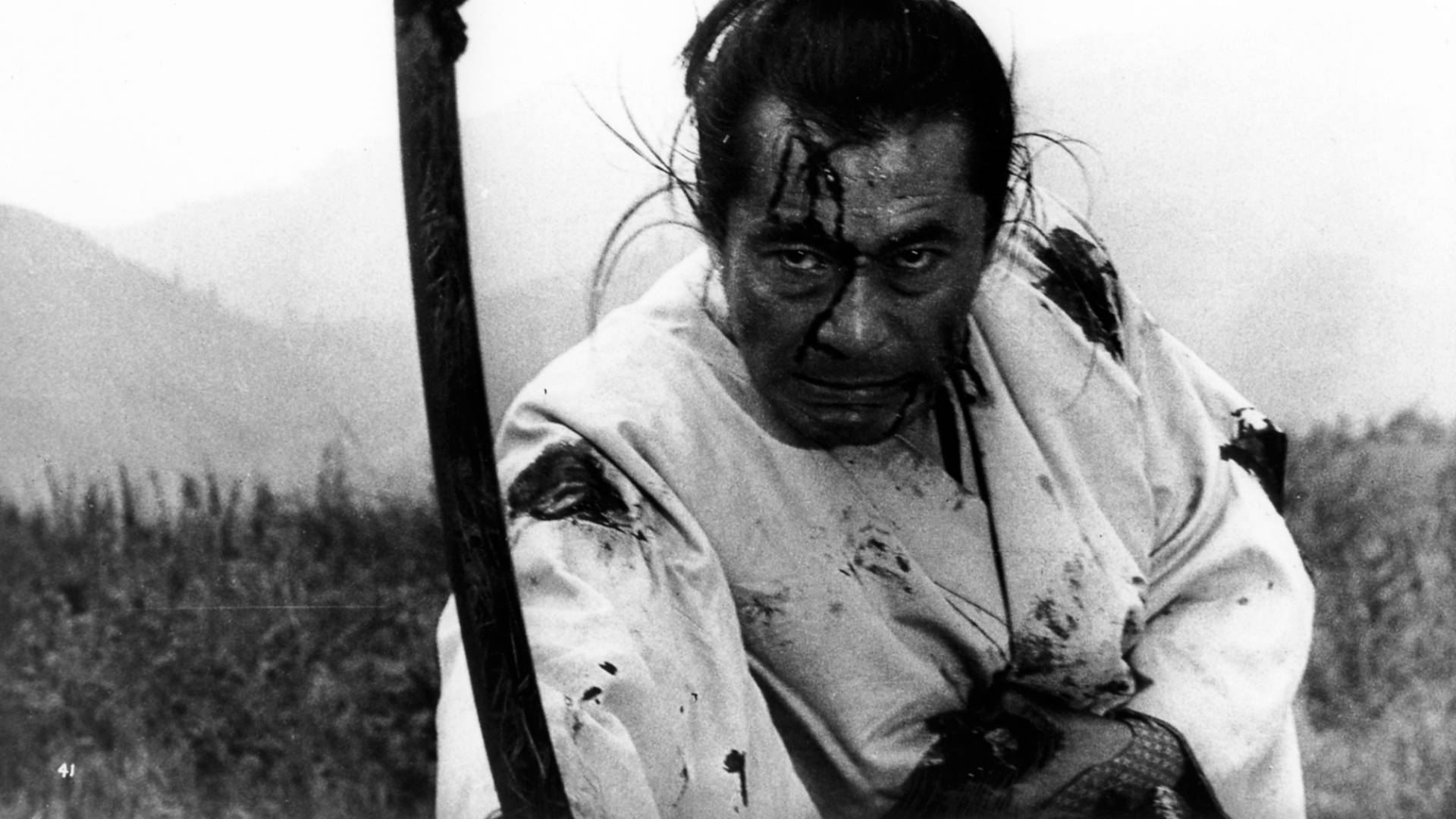
6. Samurai Rebellion (1967)
If Harakiri was Kobayashi's attack on the hypocrisy of Bushido, Samurai Rebellion is his attack on its inhumanity. Toshiro Mifune gives one of his best dramatic performances as a loyal, aging samurai who is ordered by his lord to make his son divorce the woman he loves. This quiet family drama slowly escalates into an inescapable, tragic, and powerful rebellion against a cruel and arbitrary system.
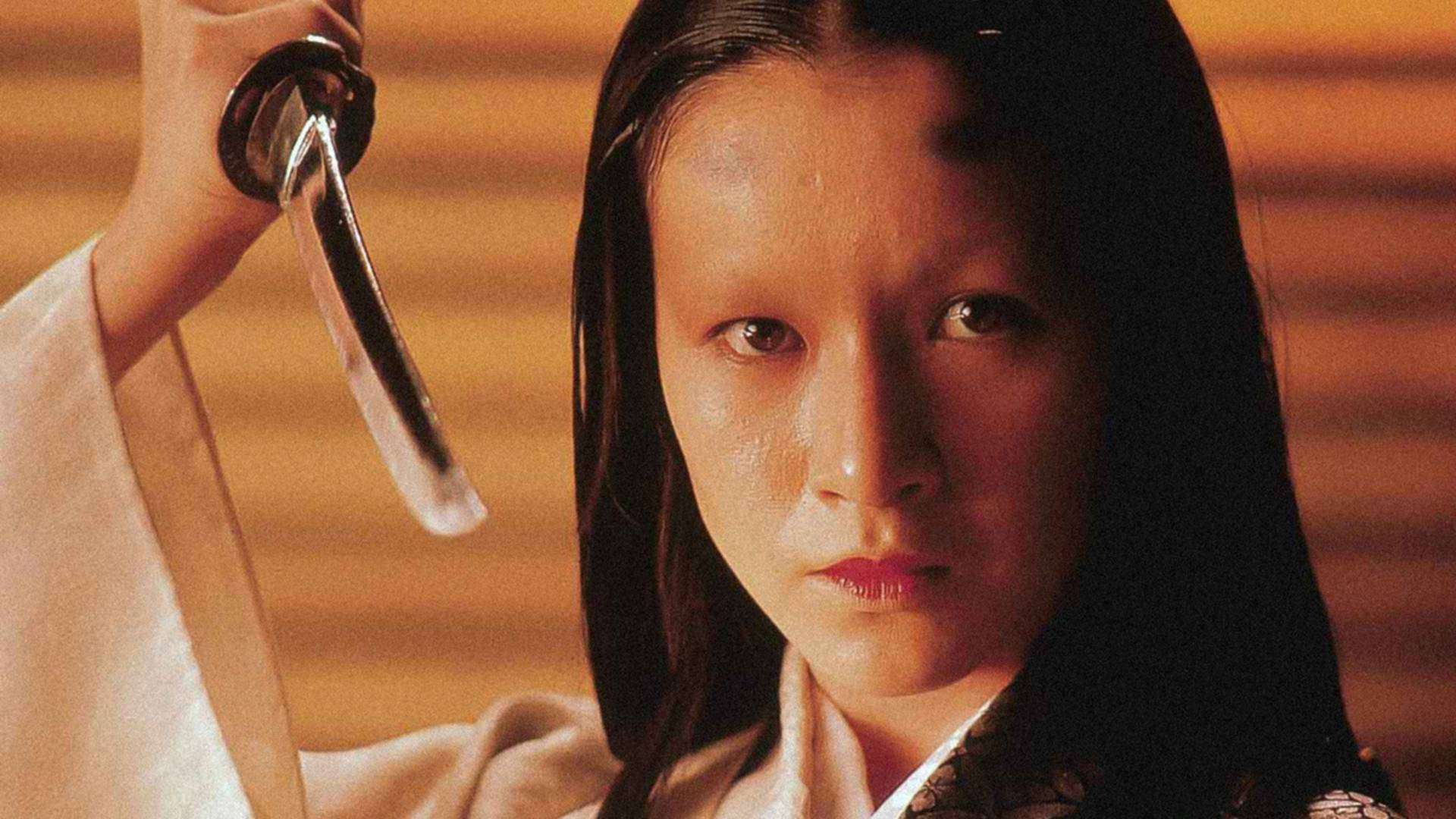
5. Ran (1985)
Kurosawa’s late-career epic is one of the most visually staggering films ever made. A loose adaptation of Shakespeare’s King Lear, it tells the story of an aging warlord (Tatsuya Nakadai) who divides his kingdom among his three sons, only to be betrayed by them. The sheer scale of the battles, the masterful use of color, and the profound sense of despair make this a monumental work of art.
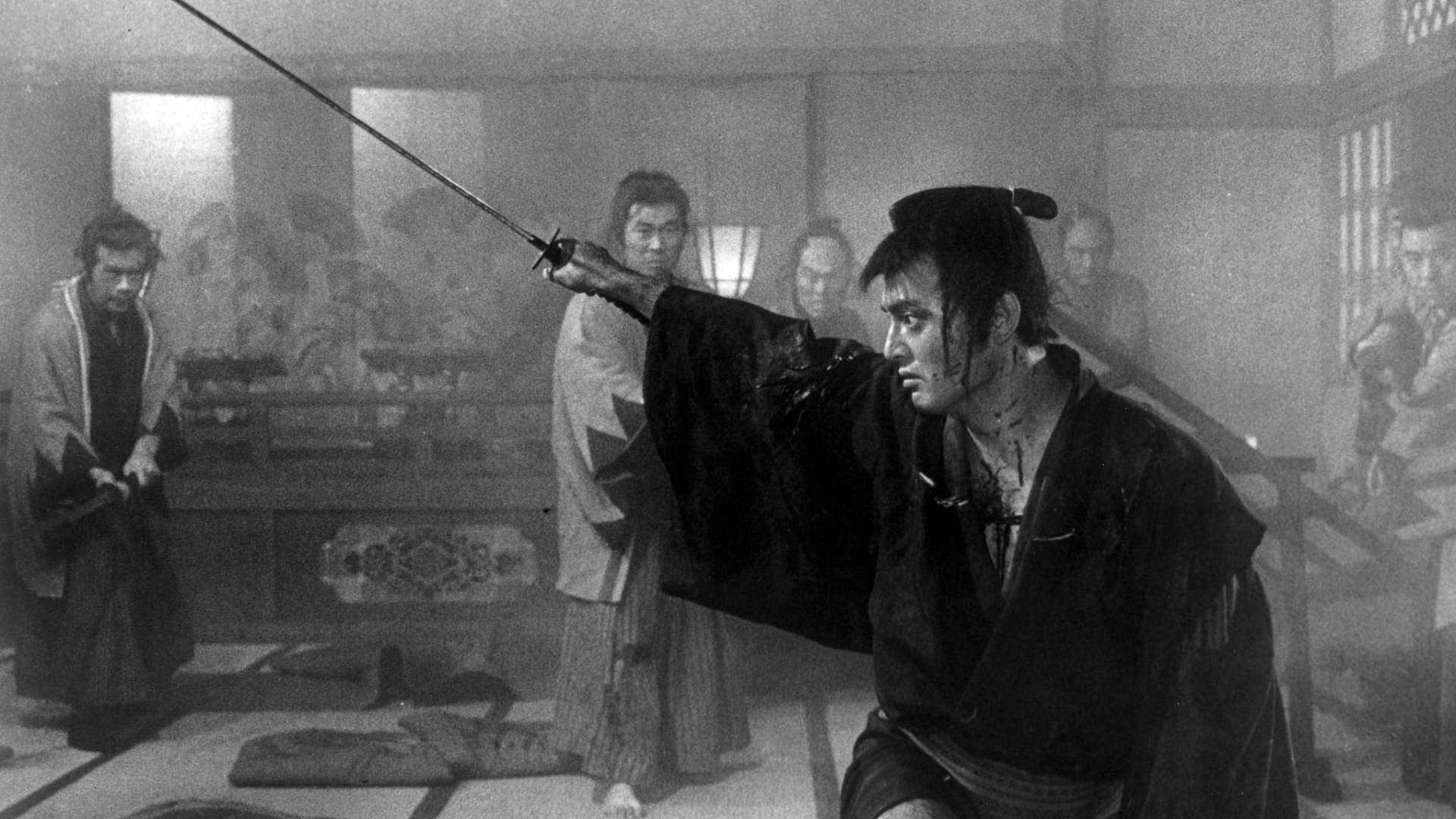
4. The Sword of Doom (1966)
Perhaps the most nihilistic samurai film ever made. The Sword of Doom is a chilling character study of Ryunosuke Tsukue (Tatsuya Nakadai), a sociopathic swordsman with a unique, unstoppable technique. He kills without remorse or reason, drifting through life leaving a trail of bodies. The film is a dark journey into madness, featuring some of the most dynamic and brutal sword fights of the era, and an absolutely legendary, apocalyptic ending.
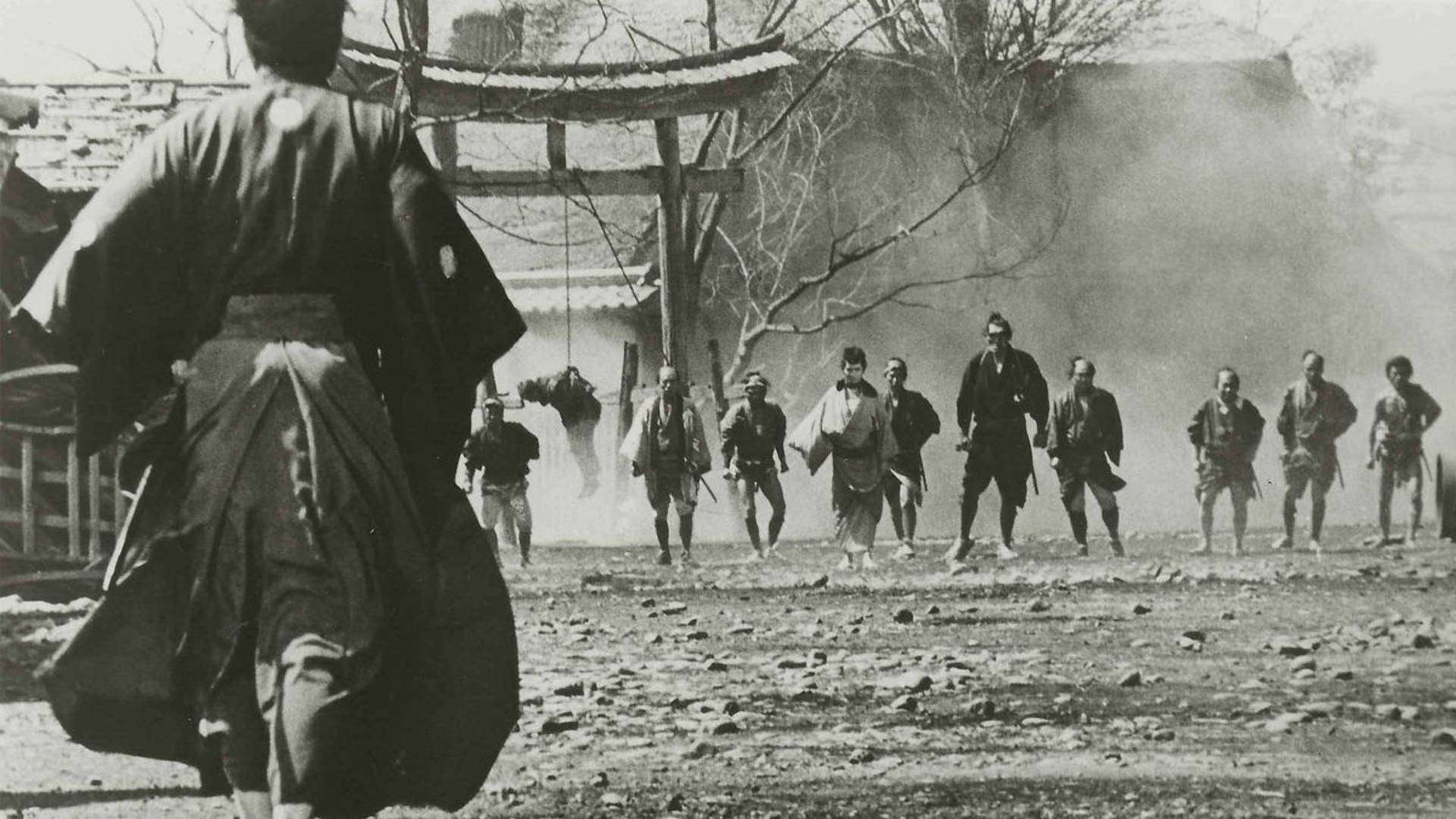
3. Yojimbo (1961)
Kurosawa’s Yojimbo is pure, unadulterated cool. Toshiro Mifune is iconic as the nameless, scruffy ronin who wanders into a town torn apart by two warring crime families. He decides to play both sides against each other for his own amusement and profit. This cynical, funny, and action-packed film not only defined the "anti-hero" ronin but was directly remade by Sergio Leone as the spaghetti Western A Fistful of Dollars.
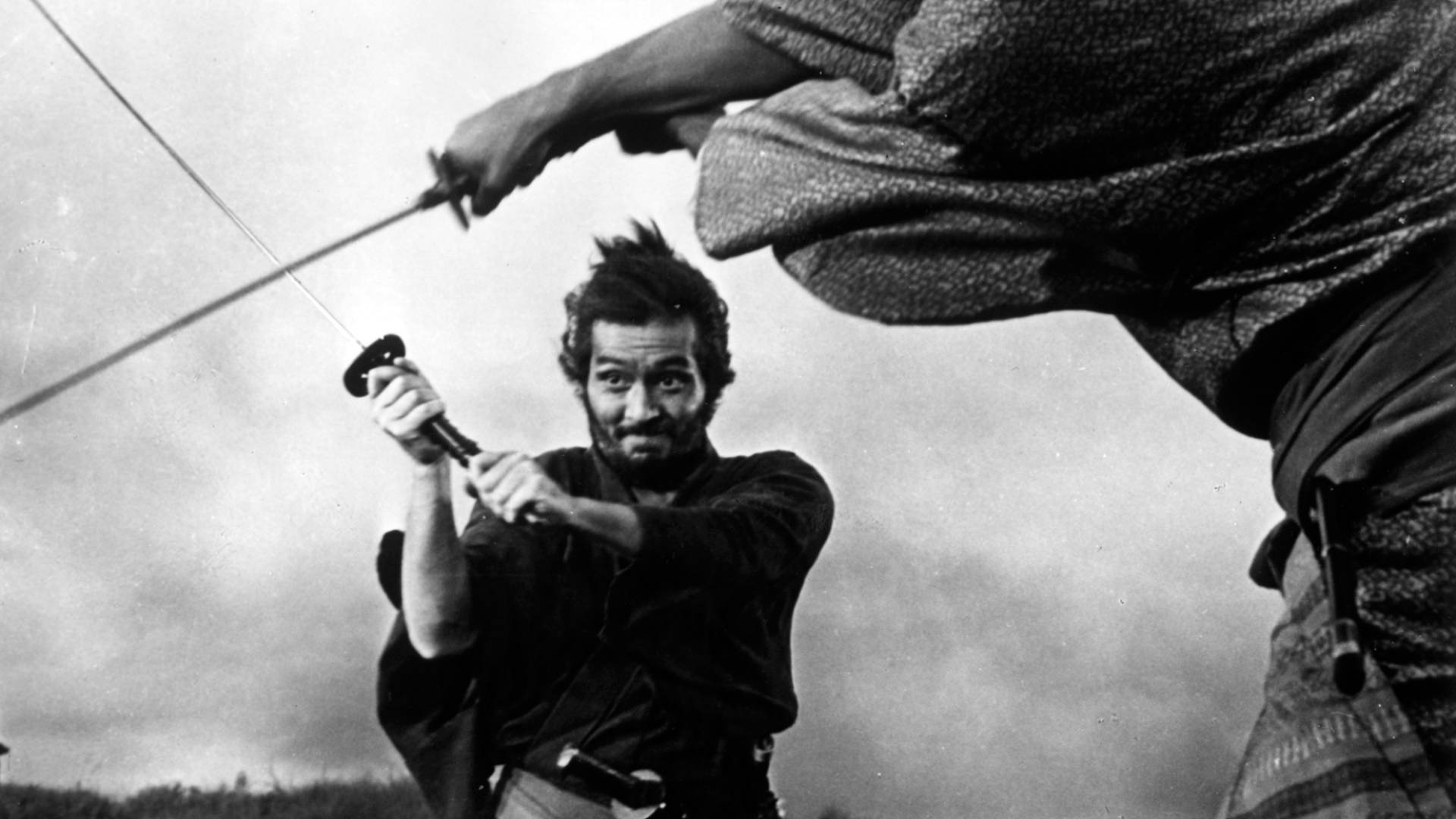
2. Harakiri (1962)
A masterpiece of tension and a devastating critique of samurai honor. The film begins with an aging, masterless samurai (Tatsuya Nakadai) arriving at a feudal lord's manor, requesting a place to commit ritual suicide. The lord, believing him to be a "suicide bluffer" trying to gain pity, tells him a grim story of another young samurai who recently came with the same request. The film unfolds in a series of perfectly constructed flashbacks, building to an emotional and violent climax that exposes the soul-crushing hypocrisy of the Bushido code.
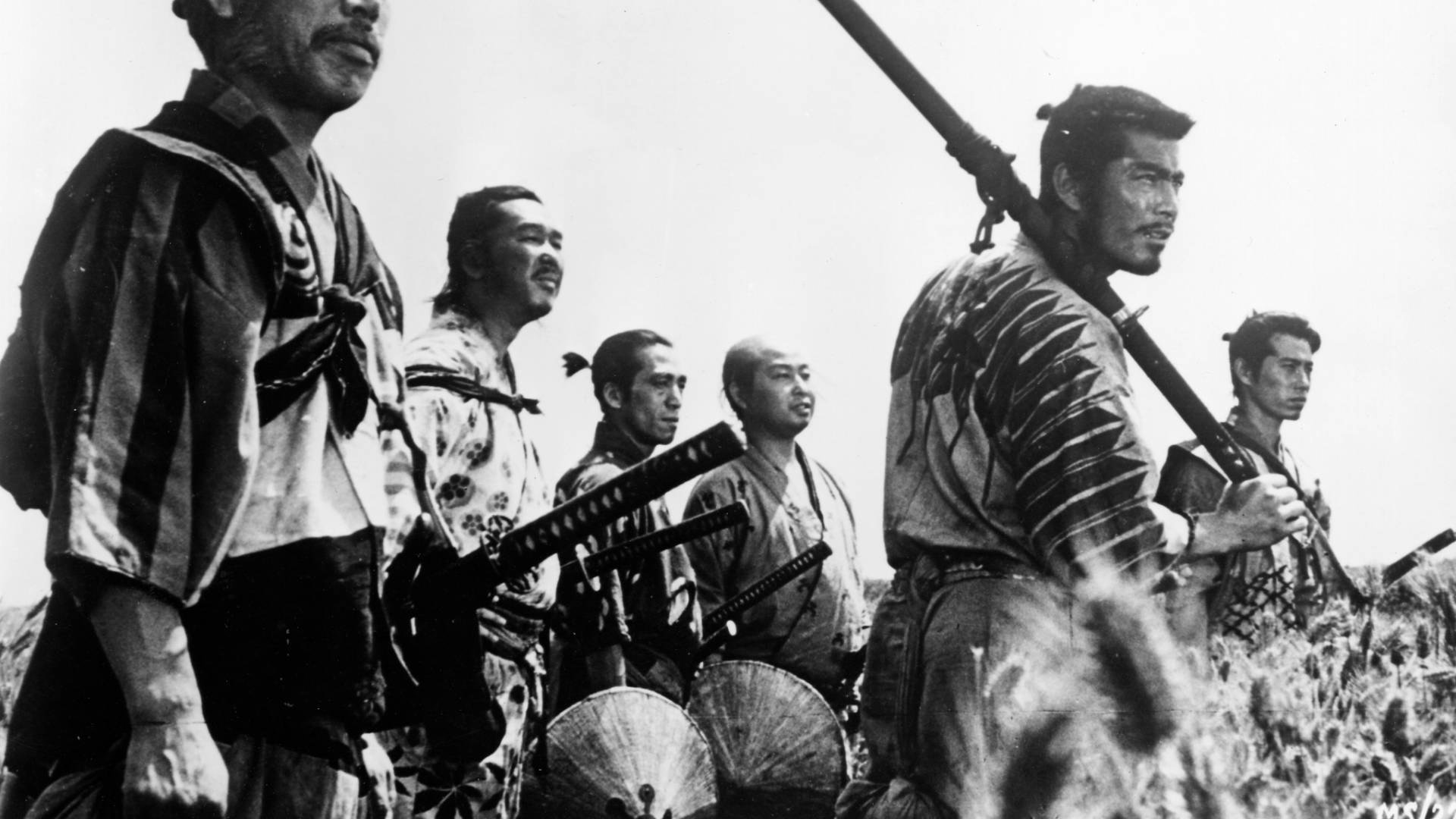
1. Seven Samurai (1954)
The ultimate epic. Seven Samurai is not just the greatest samurai movie, but one of the most influential and greatest films of all time. When a poor village is terrorized by bandits, they hire seven masterless samurai to protect them. Kurosawa’s film is a 3.5-hour masterwork that invented the "team-up" movie, giving each of its characters a distinct personality and arc. It blends profound humanity, social commentary, and some of the most thrilling, dynamic, and rain-soaked action sequences ever put to film.

